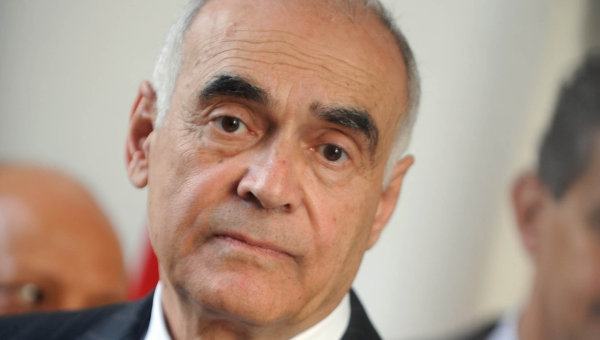CAIRO: The government s human rights watchdog condemned police intimidation during parliamentary elections last year, saying in a report Wednesday that security forces closed off polling stations to voters.
Egyptian reformers have criticized the National Council for Human Rights, formed in 2004, saying it gives only muted reports on government human rights violations. Elections in November and December were marred by widespread violence by government supporters who attacked opposition voters in some locations.
The council was much more active last year compared to the year before, and human rights in Egypt is in a state of relative progress, Ahmad Abou El Magd, a senior councilmember said in a press conference at the ruling National Democratic Party headquarters, releasing the group s second annual report.
In the report, the council expressed its concerns about some negative phenomena, including security actions such as maintaining cordon besieging some of the polling stations and hindering the voters from entering.
The council said the authorities were also resorting frequently to holding people for repeated consecutive periods of administrative detention and ignoring court orders to set detainees free.
Many of the detainees have been Islamists held for political reasons, but the Muslim Brotherhood, the main Islamist opposition group, said on Wednesday the authorities are holding only 42 of its members.
During last year s presidential and parliamentary elections the police held several thousand Brotherhood members without charge for up to weeks. The Brotherhood said the aim was to disrupt the organization s election plans.
It also noted several negative phenomena carried out by the candidates and the voters themselves, like intimidation, violence and affecting the voters with money. It did not say which parties or candidates were involved.
Pro-reform judges have also reported some fraud and vote-fixing in the election. Despite the troubles, the opposition Muslim Brotherhood movement made major gains in the voting, increasing its presence in parliament six-fold to 88 out of 454 seats. The ruling National Democratic Party maintained its majority, but only after a large number of independents joined it after winning their races.
The council called for an end to emergency laws in place since the 1981 assassination of President Anwar Sadat, which gives security forces broad powers to arrest and detain people.
It warned that the state of emergency has been expanding excessively, and because of it thousands of Egyptians are in detention centers and called for the quick end of the state of emergency to deal with the detainees issue.
President Hosni Mubarak has announced he will lift the emergency laws and replace them with an anti-terrorism law that the NDP-dominated parliament has begun to draw up.
Abou El Magd said he understands the need for an anti-terror law, but said it should not harm people s freedoms.
The report dealt with 18 human rights issues, ranging from calls for greater rights education to urging government support for the handicapped.
The council praised Mubarak for a decree promising the government will coordinate with the rights council and respond to its reports and recommendations.
The council s report also named five people who died in custody in Egypt during 2005, compared with nine people in 2004. One of those who died was a suspect in two April 2005 bombings in central Cairo, Ashraf Said, who police said banged his head against a wall during a rage while in detention. On torture by the police and security forces, the report said: The crime of torture in Egypt still takes place in some police stations and places of detention. The authorities say cases of torture are isolated and not police policy. Agencies

